Treating your relationship like a business: A successful approach
I find it helpful with couples to look at treating your relationship like a business. For my in-person sessions, when I have the couple present, I’ll say, “how is the relationship going?” I give the speech about how we are looking at it like a somewhat separate but connected entity, the same as we would when looking at a business.
The Gottman Principle: Compliments vs. Criticisms
I work with the Gottman principle which says that couples should work to 5 compliments versus 1 criticism as a baseline quota. I do my best to get my couples to aim for 8 to 1 to make the foundation even more solid.
Recognizing Contributions
Here I encourage couples to say what the other has been giving. It may be a struggle at first, so sometimes I prod, “well he/she must be doing something right?” Em well, I guess they are showing up, they came here today. Then I can write ‘committed to showing up.’
When couples can see what each other are adding, they feel validated by each other, and we are creating a new context for the relationship to continue. They can see what each other are adding and make requests of what they would like from the other over the next week hypothetically. Then we can come back the same the following week.
Addressing Imbalances
If there is over blaming towards one party or if someone is simply not as invested, then it is important to bring this into the light.
There is often an imbalance in couples when I first meet them. This is where we can do systemic work and just work with one party at a time, potentially then keep coming back together as a couple as and when we can to build this relationship like the business as discussed here.
Working with Individuals
Sometimes I work with individuals who I perceive as being overly blamed for issues in the relationship. It’s almost as if their partner has sent them to be fixed. Although there is certainly a space for clients coming to me following an ultimatum given by their partner e.g. their anger to work on, there are often cases of the partner not in counseling, to some degree disowning their own responsibility and projecting their own issues onto the respective client coming to sessions.
Invoking the Partner in Sessions
In these cases, I still give this idea of treating the relationship like a business, and we somewhat invoke the partner into the session. What might they say you were giving to the relationship? If my client says nothing, then it’s an opportunity to potentially see that their partner may not be playing ball as much as they’d like them to in the relationship and can then bring further discussion.
I think as the counselor that through this kind of practice a conversation may continue between my client and their partner, which will be constructive in some way, bringing out more truth between them and potentially even the non-present party perhaps coming to the sessions at a later time maybe due to them not liking how they were being represented in the session. This is a win-win. ‘I wouldn’t have said that; I would have said this, I’ll show you and the counselor.’
Conclusion
If you are in a relationship right now, it’s a good idea to think about the Gottman principle and if you have a 5 to 1 baseline of compliments versus criticisms. Do you have this in your relationship?
Reach out if I can help you with your relationship.
All the best,
Phil








Recent Comments